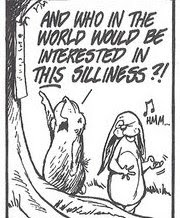To see what condition my condition is in
=====
Netflix time! This week: The Big Lebowski (1998), Casino Royale (1967), and The Merchant of Venice (2004).
The Big Lebowski
Joel and Ethan Cohen - (1998)
Starring Jeff Bridges, John Goodman, Julianne Moore, Steve Buscemi, John Turturro.
Jeff Bridges plays Jeff Lebowski, aka "The Dude", an aging pothead in LA who likes White Russians, surfing, and bowling. Things go wrong when he's mistaken for the other Jeff Lebowski, a rich man with no legs and a striking resemblance to Dick Cheney. Extortionists, intent on getting money from the other Lebowski, piss on the Dude's rug. He goes to the Big Lebowski to get compensated for his rug, only to get drawn into the kidnapping of the Big Lebowski's trophy wife.
This is a really excellent movie, for a variety of reasons. One is the pastiche of Film Noir (which seems to be a running thing with the Cohens, e.g. Fargo, The Man Who Wasn't There, The Big Lebowski). Another is the trippy way they frame scenes, especially the "Bowling Flashback" (which I'm pretty sure is the only time you actually see Jeff Bridges' eyes in the entire film). Although I couldn't tell you why, this movie is really funny, and is definitely going in the collection.
Casino Royale
John Huston, Val Guest, Kenneth Hughes, Joseph McGrath, and Robert Parrish - (1967)
Starring David Niven, Peter Sellers, Woody Allen, Terence Cooper, John Huston, Orson Welles, and Deborah Kerr
There's no plot. I mean, there are so many different plots that it's hard to tell. Only one is based on the Ian Fleming novel of the same name. While this is a send-up of the 007 genre -- something I'm all for, as my recent Matt Helm and Our Man Flint viewings have shown -- it goes too far. Any film that starts to parody itself has also lost track of what it's supposed to be making fun of, and has thus begun to collapse. I liked bits of it, mostly dialogue ("Are you Richard Burton?" "No, I'm Peter Sellers." "Then you, sir, are the greatest man who ever lived.") and Deborah Kerr's Scots accent just about did it for me. Other than that, it's too silly, and doesn't even have the redeeming camp value of other British comedies (e.g. Passport to Pimlico or the Carry On series).
The Merchant of Venice
Michael Collins - (2004)
Starring Joseph Finnes, Jeremy Irons, Al Pacino, Lynn Collins
One of Speare's more troubling plays, The Merchant of Venice is a kind of half-comic, half tragic farce. Bassanio of Venice (Joseph Finnes) has fallen on hard times, but has a solution: if he can just marry the heiress Portia (Lynn Collins), she'll solve all his troubles. However, he needs three thousand ducats to make his suit, and so turns to Antonio (Jeremy Irons), the Merchant of the title. Antonio, however, has everything tied up in shipping, and thus can't give Bassanio the money—but he does have connections with Shylock (Al Pacino), a Jewish moneylender. Shylock, however, is not fond of Antonio, and so writes a compact stating that if Antonio be forfeit, he shall pay with a single pound of his own flesh.
The acting was spot-on, and much of the dialogue was intact (as was Titus, but not, say, Richard III). I suppose the only thing that bothers me about the play is the play itself, and in this day and age, I suppose it should. Though the director goes to pains in order to make Shylock more sympathetic, his case against Antonio is not entirely clear; does he also blame the merchant for the loss of his daughter? Has this loss—not a clear connection to begin with—driven him insane? Why does he suddenly convert, when moments before he was willing to let the Duke take his life? It doesn't hang, and maybe that's the point: if Shakespeare had let Shylock remain resolute to the end, then he may well have seen fit to kill him onstage, too, and incite the groundlings to further violence. Not, of course, that there were officially Jews in England in the early 17th century. It's a mess, though, and a really tough thing to stage, though that doesn't excuse Pacino's occasional hackneyed recitation of his lines. Watch out for Gareth Keenan as Leonardo, and Jason Sidor—er, Joseph Finnes as Bassanio.

